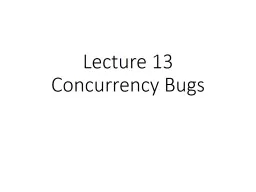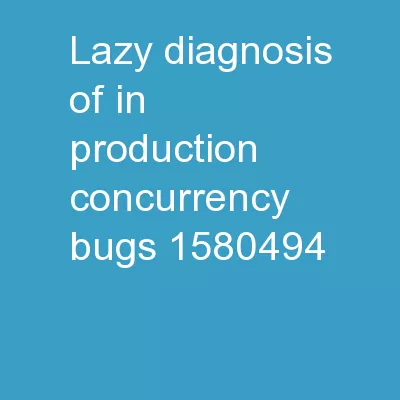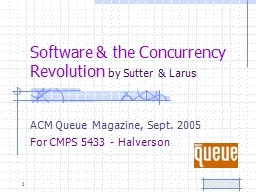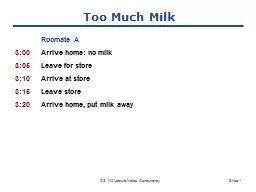PPT-Lecture 13 Concurrency Bugs CV rules of thumb: Keep state in addition to CV’s
Author : pamella-moone | Published Date : 2019-11-01
Lecture 13 Concurrency Bugs CV rules of thumb Keep state in addition to CVs Always do waitsignal with lock held Whenever you acquire a lock recheck state Implementing
Presentation Embed Code
Download Presentation
Download Presentation The PPT/PDF document "Lecture 13 Concurrency Bugs CV rules of ..." is the property of its rightful owner. Permission is granted to download and print the materials on this website for personal, non-commercial use only, and to display it on your personal computer provided you do not modify the materials and that you retain all copyright notices contained in the materials. By downloading content from our website, you accept the terms of this agreement.
Lecture 13 Concurrency Bugs CV rules of thumb: Keep state in addition to CV’s: Transcript
Download Rules Of Document
"Lecture 13 Concurrency Bugs CV rules of thumb: Keep state in addition to CV’s"The content belongs to its owner. You may download and print it for personal use, without modification, and keep all copyright notices. By downloading, you agree to these terms.
Related Documents














